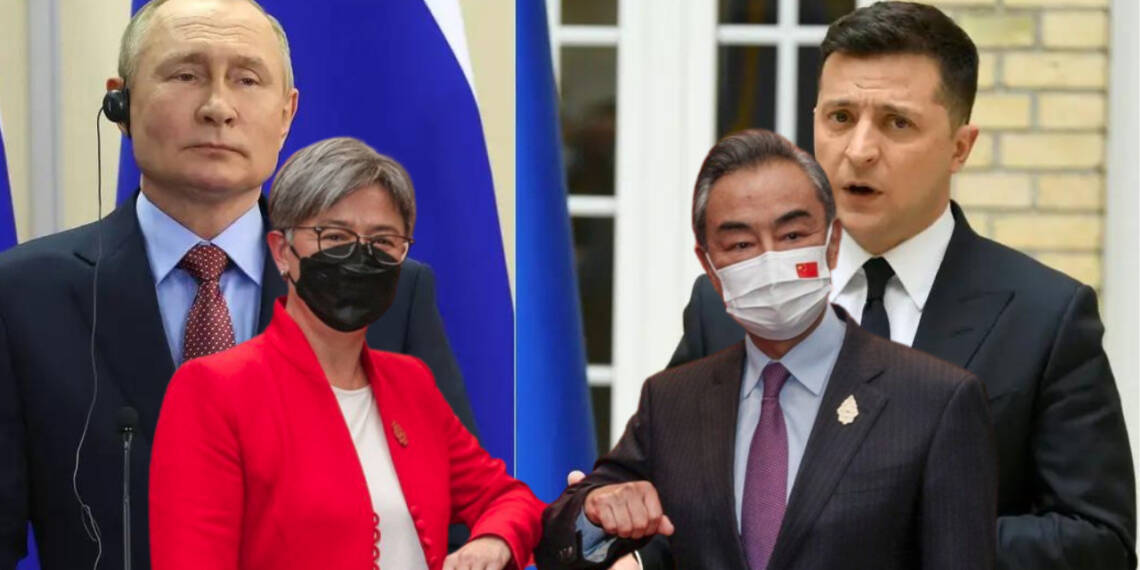All hell will break loose in Europe in the upcoming days. Europe will face another big jolt in the Ukraine war. And it is entirely responsible for this.
China and Australia who grew hostile to each other in the last couple of years are again joining hands with each other. And the heat of Beijing and Canberra coming together will be felt by Europe more than anyone else.
How would the unity of China and Australia affect Europe?
Australia and China
Everything was hunky dory between Australia and China till 2018. They had one of the most robust relationships with each other. However, as soon as Scott Morrison was elected as Australia’s Prime Minister, things started to take a drastic turn.
And then Covid-19 happened, which only added fuel to the fire.
Australia’s then Prime Minister Scott Morrison said that WHO required tough, “weapons inspector” powers to probe the pandemic’s cause after Australia sought an independent inquiry into the original coronavirus outbreak in China.
To rub the salt in the wound, Australian Foreign Minister Marise Payne with foreign ministers of ‘Five Eyes’ criticized the Hong Kong national security law and blamed China for curtailing media freedom and violating human rights.
China took several steps to decrease its reliance and make Australia bow by curtailing trade and raising tariffs multi-fold on several imports. Australia rather than falling into Beijing’s malicious trap cancelled its agreements of the Belt and Road Initiative (BRI).
China bans Australian coal
Amidst this, one of the significant things happened. China banned imports of coal from Australia. To put things into perspective, Australian exports make up 58 per cent of the world’s seaborne trade in metallurgical coal, which is necessary for the production of primary steel. In 2020, China produced 57 per cent of the world’s steel, making it a hub of the steelmaking industry.
Since enacting the ban, China has paid more than $400 million for every million tonnes of coal used in its steel mills, compared to about $250 million paid by everyone else.

China has faced the brunt of banning coal of Australia. It has faced the worst power crisis in years because of the coal shortage. The shortage has caused blackouts and factory shutdowns in China.
However, the sanctions did not yield the expected result of economically pushing the Morrison government to change its posture toward China.
According to Bloomberg, now senior authorities of China have been presented with a plan to begin importing coal from Australia because of concern that European export restrictions on Russian coal would further drive up prices worldwide.
Also Read: China makes Australia cancel the AUKUS deal?
Europe’s diversification
Yes, Europe which has placed an embargo on Russian coal has increased importing Australian coal. Australian coal exports to northern Europe grew from 5.4 million tonnes in the first half of 2021 to 9.2 million tonnes in the first half of 2022. This is more than a 70% increase from 2021.

Jim Chalmers, the Australian Treasurer recently said that any action by China to lift an almost two-year import restriction on coal of Australia would be a crucial first step in improving relations between the two countries.
It’s possible that Penny Wong, the foreign minister of Australia, and Wang Yi, the foreign minister of China, laid the stage for a rollback of the coal policy during a recent “ice breaker” meeting.
Pranay Shukla, associate director at S&P Global Market Intelligence said that if the thaw between Australia and China on coal starts to break, “Australia is expected to leave Europe and its allies with tighter coal supplies who are already depending on Australia as an alternative to Russian coal.”
Europe which imported almost 50 per cent of coal from Russia is actively looking for alternatives.
And with winters approaching, losing Australia as an alternative to China will be a heavy blow to the continent. Europe’s ban on Russian coal is scheduled for August onwards and the major brunt will be faced by countries like Netherlands, Germany, and Poland who were heavily reliant on Russian coal and are struggling with alternatives.
And once, Australia decreases exporting coal to Europe, criticism will follow Australia. And with its friends starting to criticize it, Australia might take a turn towards Russia and China in the Ukraine war.








